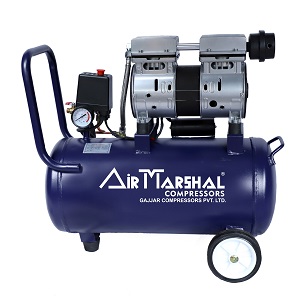As the world embraces a more environmentally
conscious mindset, various industries are exploring innovative ways to reduce
their ecological footprint. Dentistry, often overlooked in the sustainability
conversation, is also making strides towards eco-friendly practices. One
significant advancement in this direction is the adoption of oil-free
compressors. In this blog, we'll delve into the intersection of dentistry,
sustainability, and the role that oil-free compressors play in reducing
environmental impact.
The Environmental Challenge in Dentistry
Dental practices, while focused on oral
health, generate a surprising amount of waste and consume significant energy
resources. Traditional dental compressors, powered by oil, contribute to both
pollution and energy inefficiency. The operation of these oil-based systems
releases harmful emissions and requires frequent oil changes, leading to
environmental degradation.
Enter Oil-Free Compressors
Oil-free dental compressors have emerged as a
sustainable solution that aligns with the green movement. Unlike their
oil-based counterparts, these compressors don't rely on lubricating oil during
operation. Instead, they use advanced technologies like dry piston rings and
self-lubricating materials to ensure optimal performance without oil
consumption.
Benefits of Oil-Free Compressors for
Sustainability
Reduced Pollution: One of the most
significant advantages of oil-free compressors is their lower emissions. Since
they don't burn oil during operation, they contribute far fewer pollutants to
the air, improving indoor air quality and reducing the carbon footprint of
dental practices.
Energy Efficiency: Oil-free compressors are engineered to be more energy-efficient
than traditional oil-based models. They require less power to operate, leading
to decreased energy consumption and reduced utility bills.
Minimal Waste: Oil-free compressors eliminate the need for regular oil changes
and maintenance associated with traditional compressors. This reduction in
waste contributes to a greener practice with lower disposal requirements.
Longevity and Reliability: With fewer moving parts, oil-free compressors tend to have a
longer lifespan and require less maintenance. This extended lifespan means
fewer units end up in landfills, contributing to sustainable equipment
practices.
Patient Well-being: Oil-free compressors provide clean and uncontaminated air,
which is essential for patient health and safety. They also contribute to
infection control by preventing the release of oil particles into the air,
maintaining a sterile environment.
Implementation in Dental Practices
To fully embrace the green potential of
oil-free compressors, dental practices need to consider a few steps:
Education and Awareness: Dental professionals should be aware of the benefits of
oil-free compressors and their impact on sustainability. Training staff to
operate and maintain these systems properly is crucial.
Investment in Technology: While oil-free compressors might have a higher upfront cost,
the long-term savings in energy and maintenance expenses make them a wise
investment for eco-conscious practices.
Regular Maintenance: Although oil-free compressors require less maintenance, routine
checks and servicing are essential to ensure optimal performance and longevity.
Sustainability in dentistry is not just a
trend but a necessity. By adopting oil-free compressors, dental practices can
significantly reduce their environmental impact, enhance patient well-being,
and contribute to a greener future. These compressors showcase the potential
for technological innovation to align with eco-friendly practices, showcasing
that even the smallest change can lead to significant positive effects. As the
dental industry continues to evolve, embracing oil-free compressors is a step
toward a healthier planet and a healthier community.

No comments:
Post a Comment